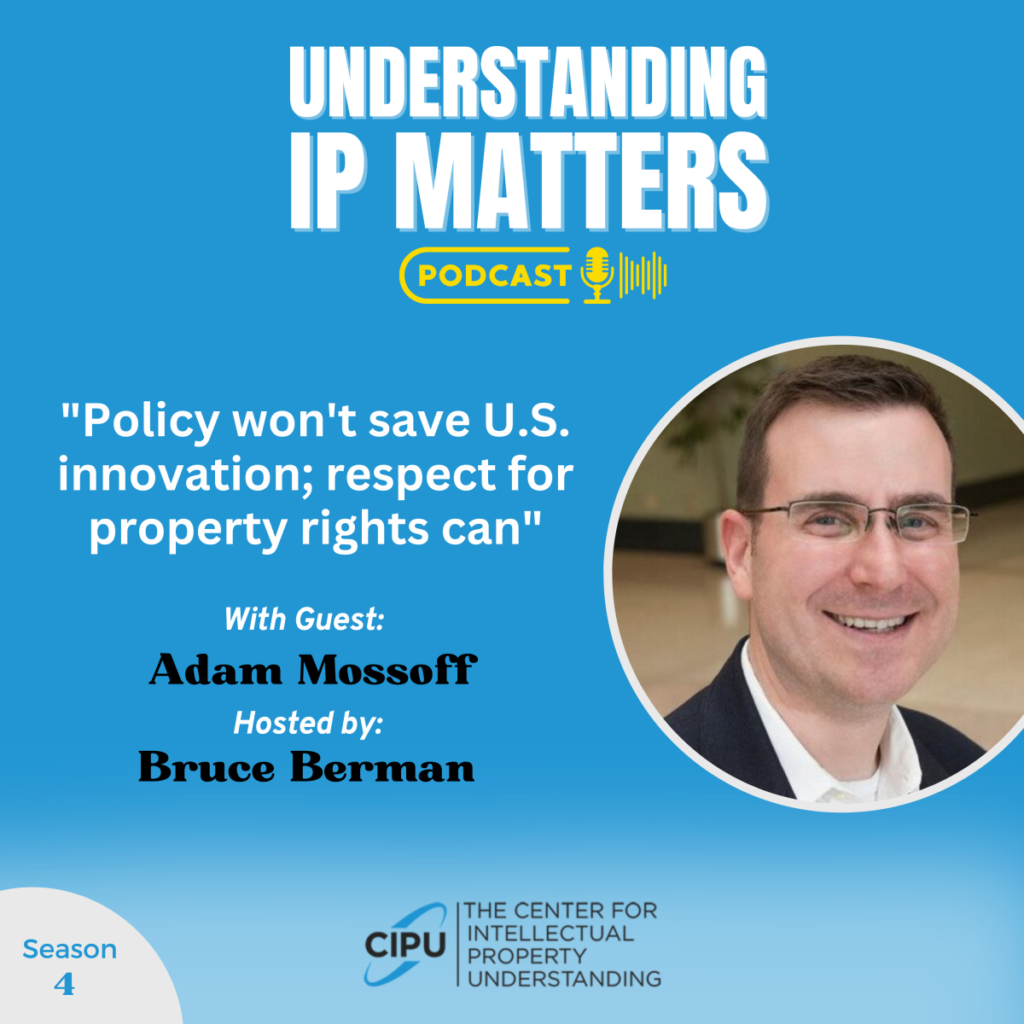Private property rights like patents that cover inventions promote a growing innovation economy and a flourishing society. Without them there would be idle curiosity, but little incentive to create, nurture and invest in new ideas.
This is the position held by Adam Mossoff, a leading expert on innovation and intellectual property history, and a law professor whose influential research has been relied upon by the Supreme Court, the U.S. Court of Appeals for the Federal Circuit, and by federal agencies.
Mossoff spoke recently to host Bruce Berman on the popular ‘Understanding IP Matters’ podcast, in an episode that dropped a few days ago.
“Having patents and copyrights is not about economic policy,” he says. “They’re part of the moral claim that one has to life, liberty and property—and property includes your intellectual property.”
Patent Rights Weakened
Mossoff discussed how the strength of patent rights in the United States has been effectively weakened over the past decade. The current state of U.S. patent law is adverse to both business and individual creators, he says, and the need to recalibrate, especially in the area of patents, is paramount. The positive impact bills before the current Congress could be a game changer.
Included among the topics covered on Policy won’t save U.S. innovation; respect for property rights can:
- Why infringement of patent rights by tech companies should be considered “predatory” infringement, not “efficient” infringement
- The impact of the pending Congressional patent bills, which attempt to abrogate 4 key Supreme Court decisions
- How IP rights are foundational in the United States and their strength and importance must be protected as the Founding Fathers wished
“The patent system has been undermined through lobbying for new laws written by Congress,” observes Mossoff.
Strategic Litigation
“It has been undermined through what we call strategic litigation; very explicit directed litigation—lawsuits filed and defenses argued by parties who are coordinating them to achieve certain results through the courts and also through lobbying. And it’s been very successful.”
Professor Mossoff has been invited to testify several times before the Senate and the House on proposed patent legislation, and he has spoken at numerous congressional staff briefings.
Mossoff’s writing on patent law and policy have appeared in The New York Times, Forbes and many other media outlets. He is a member of the Academic Advisory Committee of the Copyright Alliance and has served as past Chair of the IP Committee of the IEEE-USA.
A Senior Fellow at the Hudson Institute, where he chairs Hudson’s Forum for Intellectual Property, Mossoff is also a member of the board of directors of Center for Intellectual Property (CIPU).
Image source: CIPU; understandingip.org
